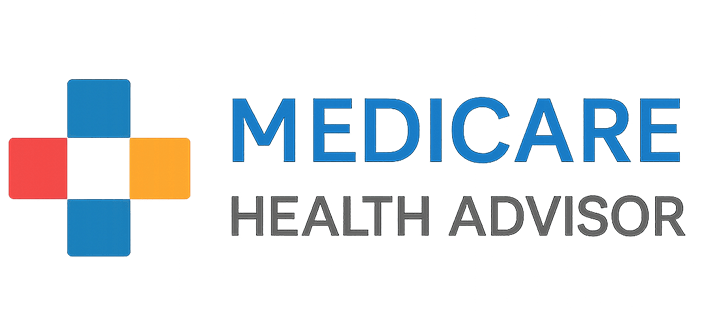Over 6.9 million Medicaid beneficiaries are 65 or older. Medicaid is an essential resources for Seniors and people with disabilities.
The Medicaid Spendown program applies to people who apply for Medicaid and their monthly income is over the Medicaid Level. Any income that is over the Medicaid monthly income guidelines, is considered or called Spend-down, Surplus Income, or Excess Income. In this article, we will use one word so there’s no confusion – Excess income. Medicaid follow certain eligibility guidelines set out by the state. There are usually 3 common factor to determine ones eligibility. Income, Family Size, and Resources. If your resources level is within the specific state guidelines after determining your family size, but your monthly income is over the Medicaid limit, the additional income will be considered as Excess income.
Example: Lets say Mr. John Doe is single, lives in New York, and his resources level is within the Medicaid guidelines, but his income is 900 a month. If the Medicaid income limit for 1 person in New York is Aged, Blind or Disabled is 875 a month in 2020, the Excess income would be 25 dollars. If your monthly income is over the Medicaid Level, you may still be able to get help with your medical bills.
The Medicaid spend down is like a deductible.
In other words, the amount your income is over the Medicaid level is called a spendown. If you can show Medicaid that you have medical expenses, or that you paid for medical expenses that are equal to your spend down. If you are eligible for Medicaid except for having excess income and you can present that you have medical bills equal to your excess income in a particular month, Medicaid will reimburse your additional medical bills beyond that for the rest of the month. No keep in mind, that the spendown is determined by the amount your income is over the Medicaid limit. Every person situation varies, and the spendown varies as well, again, depending on your income. Once the specific Medicaid spendown is reached, Medicaid will pay for provider visits, lab tests, prescription drugs, out patient care, and home care or long term care services.
So who may qualify for a Medicaid spendown & how is eligibility determined?
People under age 21, 65 or older, certified blind or disabled, pregnant or parent of a child under 21. Once contacting or visiting your local Medicaid office, you must tell them that you want to be in the Excess Income Program. Medicaid will determine your excess monthly income amount. The caseworkers check your gross monthly income and consider certain deductions depending on whether you are 65 or older, certified disabled or blind, under age 21, pregnant, or a parent of a child under age 21.
There are two ways you can spendown to the Medicaid level
- Out patient Care and Services ( one Month Eligibility).
If you have medical bills that are equal to or more than your monthly excess income, you may be able to get help with these bills, and you can get Medicaid outpatient services for one month at a time. This included outpatient care in a clinic, hospital, or doctors office, and even prescription drug or medical supplies.
Note: you need to keep a record of your medical bills and bring in, or fax your medical bills to your Local Medicaid office when they are equal to your excess income amount, regardless of whether your bills are paid or unpaid. This has to be done each month you need outpatient care.
- If you have a situation where you need help paying your hospital bills, or for medical services other than hospital care, you may be able to get Medicaid inpatient and outpatient services. In this scenario, your paid or unpaid bills must be equal to your monthly excess income amount for six months. Once your bills are received by the local Medicaid office, you will then have Medicaid for six months.
If you don’t have medical, doctor, or hospital bills, there is another option where you can pay your monthly excess income amount on a month to month basis ( you can request this set up at your local Medicaid office).This is called the Pay-In Program. If you know you have future medical appointment coming up within that month, you can use this option to have Medicaid pay for your bills.
If you do not choose the Pay-In option and you do not have any medical bills that are equal to or exceed your excess income, you will not have Medicaid coverage for that month.
What if you have past medial bills, can you use it towards Excess Income Program?
Past medical bills can only be used once, and may be used if the medical services were paid within the three calendar months before the month you applied for Medicaid, and they will be counted towards your excess income amount for the current month and additional months. Note, that nay bills paid by EPIC in the past three months before the month you applied for Medicaid can be used towards your excess income.
Example: Your EPIC paid 75 for your prescriptions each month, and in addition to that, you have payed copays on your medications which come out to 20 dollars a month. You applied for Medicaid the following month, lets say December, and you don’t have any unpaid medical bills. Let’s say you are eligible for Medicaid and your Medicaid is effective December 1st, and your excess income was determined to be 100 dollars. Lets say you did not need coverage in the retroactive period ( which lasts for three months prior to December – September, October, November, the amounts paid by EPIC, and the copay amounts you paid on your medication ( for the past three months – $ 285 can be applied towards your spendown for the following 6 months after your Medicaid effective date.
Remember, once you meet your excess income amounts, Medicaid will pick up coverage for services for the rest of the month.
Here’s a list of medical expenses you can show that can apply towards your spendown, and keep in mind the providers you see don’t have to be medical providers.
- Copayments on your medical plans, and can only use the part of the bill that Medicare or private insurance does not pay.
- Copayments on prescriptions, copayments on Epic, and bills paid by EPIC. To get a statement of costs, call EPIC 1-800-332-3742. Request costs paid in the three months before the month you are applying for Medicaid.
- Transportation to and from medical appointments (save a copy of your receipts)
- Doctor visit expenses, therapists Visit, Eye Exam and glasses expenses, and Dental expenses
- Home Health Aid expenses, Medical supplies, and equipment expenses
- Chiropractor visits and other medical services not covered by Medicaid.
- Over the counter drug expenses
Important Note: Bills for cosmetics and other non-medical items are not allowed; Once your bills meet your excess income, Medicaid will only pay medical bills from a doctor, pharmacist, or other provider who are in the New York State Medicaid program. You need to see if your doctor or other medical provider is enrolled in Medicaid so your bills over your excess income amount can be paid;
Hope this article has helped you get a better understanding :-).
















Add Comment